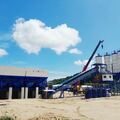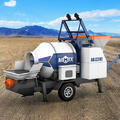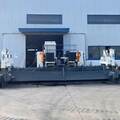The concrete batching industry is undergoing significant changes due to advancements in technology, increasing demand for efficiency, and growing environmental concerns. Concrete batching plant suppliers are adapting to these shifts by integrating automation, sustainability measures, and cost-effective solutions. These trends are reshaping the industry and influencing factors such as ready mix concrete plant price, operational efficiency, and market competitiveness.
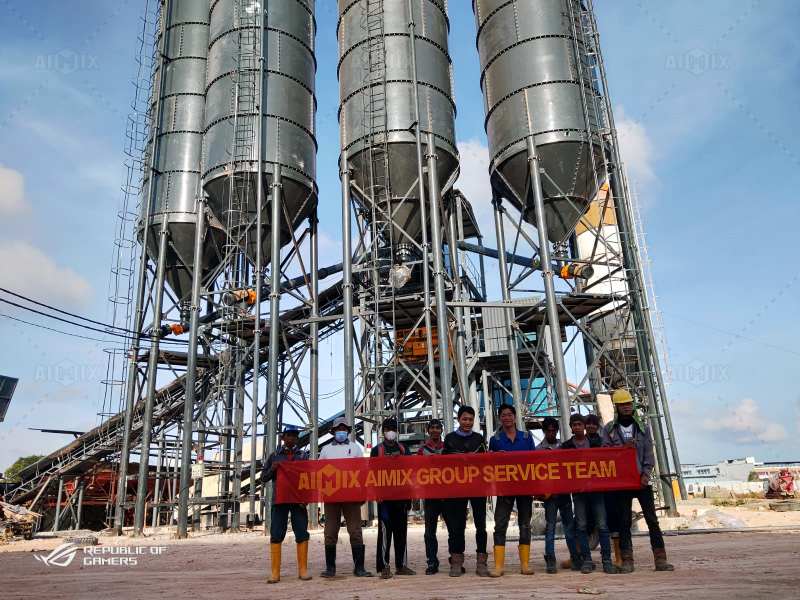
Key Trends in the Concrete Batching Industry
1. Automation and Digitalization in Concrete Batching
One of the most significant changes in the concrete batching industry is the adoption of automation and digital technologies. Smart batching plants now utilize IoT (Internet of Things), AI-driven control systems, and cloud-based monitoring to enhance accuracy and productivity. These advancements allow operators to track real-time performance, optimize material usage, and reduce errors in the mixing process.
How Suppliers Are Adapting:
-
Offering fully automated batching systems that minimize human intervention.
-
Implementing AI-based quality control systems to ensure consistent concrete mixes.
-
Providing remote access and monitoring solutions for better plant management.
2. Sustainability and Eco-Friendly Solutions
With a growing emphasis on environmental sustainability, suppliers are developing eco-friendly concrete batching plants that reduce carbon footprints. Governments and regulatory bodies are enforcing stricter emissions controls, prompting suppliers to integrate greener technologies.
How Suppliers Are Adapting:
-
Introducing recycled aggregates and alternative cementitious materials.
-
Designing batching plants with water recycling and waste management systems.
-
Developing low-energy consumption batching equipment to optimize power usage.
3. Customization and Modular Design
Contractors and construction firms have diverse project requirements, leading to a rising demand for customized batching solutions. Suppliers are offering modular batching plants that can be easily adjusted based on production needs.
How Suppliers Are Adapting:
-
Providing scalable batching plant solutions that cater to small and large projects.
-
Offering interchangeable components to adapt to different concrete mixes.
-
Developing mobile and compact batching plants for on-site operations.
4. Growing Popularity of Mobile and On-Site Batching Plants
Mobile concrete batching plants have become increasingly popular due to their convenience, flexibility, and cost-efficiency. Unlike stationary plants, mobile batching plants allow contractors to set up near the construction site, reducing transportation costs and ensuring fresh concrete delivery.
How Suppliers Are Adapting:
-
Expanding their product range to include high-capacity mobile batching plants.
-
Offering self-erecting mobile batching plants for quick setup.
-
Enhancing mobility features with compact designs and easy transportability.
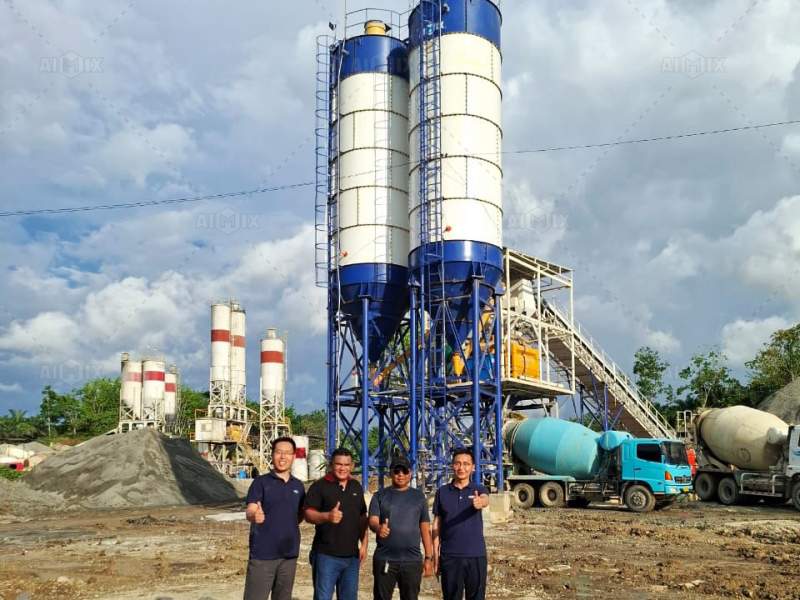
5. Impact on Ready Mix Concrete Plant Price
The trends in the concrete batching industry are directly affecting the ready mix concrete plant price. Factors such as advanced technology integration, sustainability measures, and automation capabilities are influencing plant costs.
Key Cost Factors:
-
Technology Level: Automated and IoT-enabled plants tend to be more expensive initially but offer long-term savings.
-
Production Capacity: High-capacity plants come with a higher ready mix concrete plant price due to their ability to produce large volumes.
-
Energy Efficiency: Plants with low-energy consumption technology may have a higher upfront cost but lead to operational savings.
-
Customization and Modular Features: Custom-built batching plants may cost more than standard models but provide project-specific advantages.
6. Global Market Expansion and Supplier Competition
As demand for concrete batching plants rises worldwide, suppliers are expanding their reach to emerging markets. Countries investing heavily in infrastructure and urban development are driving the demand for efficient concrete production solutions.
How Suppliers Are Adapting:
-
Establishing regional distribution centers to reduce lead times.
-
Offering localized support and after-sales services to improve customer satisfaction.
-
Partnering with construction companies and government projects to increase market presence.
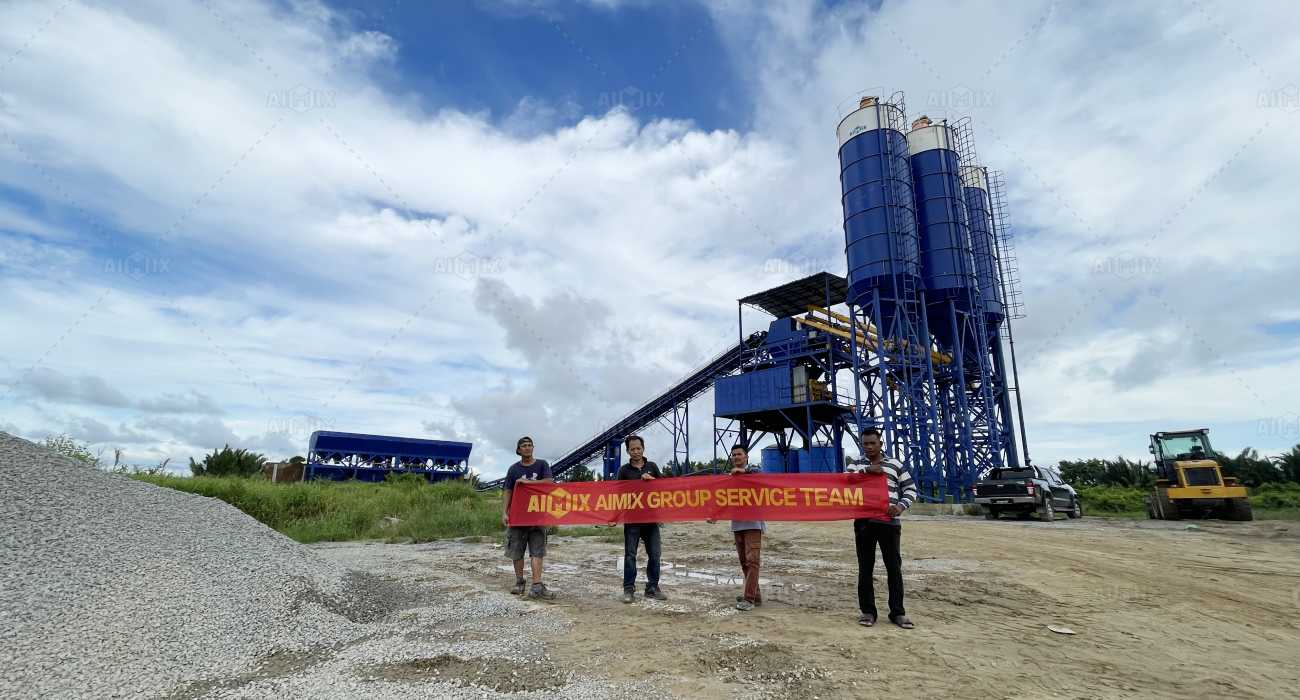
Conclusion
The concrete batching industry is evolving rapidly, with suppliers adopting automation, sustainability, modular designs, and mobile solutions to stay competitive. These trends are influencing the ready mix concrete plant price by integrating advanced features that improve efficiency and long-term cost savings. As construction demands continue to grow, suppliers must remain innovative and adaptable to meet the ever-changing needs of the industry. Whether investing in stationary, mobile, or eco-friendly batching plants, choosing the right supplier will be critical for long-term success in concrete production.

